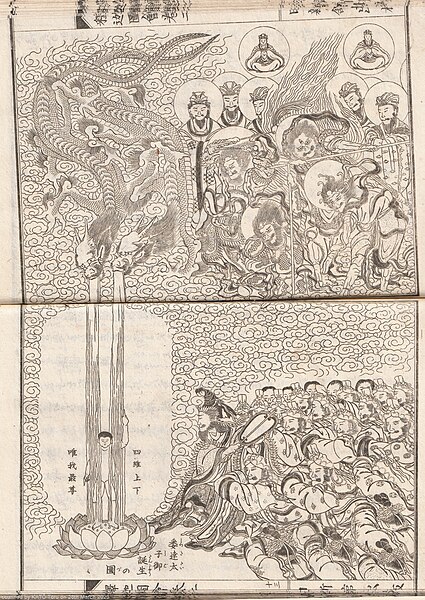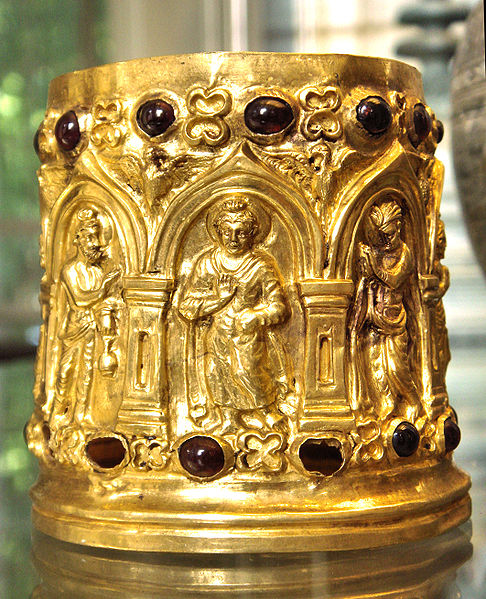Buddha's Birthday or Buddha Day is a primarily Buddhist festival that is celebrated in most of South, Southeast and East Asia, commemorating the birth of the prince Siddhartha Gautama, who became the Gautama Buddha and founded Buddhism. According to Buddhist tradition and archaeologists, Gautama Buddha, c. 563-483 BCE, was born at Lumbini in Nepal. Buddha's mother was Queen Maya Devi, who delivered the Buddha while undertaking a journey to her native home, and his father was King Śuddhodana. The Mayadevi Temple, its gardens, and an Ashoka Pillar dating from 249 BCE mark the Buddha's birth place at Lumbini.
Buddha's Birthday celebration in Seoul, South Korea
Buddha's statue located near Belum Caves, Andhra Pradesh, India
Illustration by Hokusai
Lotus Lantern Festival Yeondeunghoe celebrating Buddha's Birthday, in South Korea
Siddhartha Gautama, most commonly referred to as the Buddha, was a wandering ascetic and religious teacher who lived in South Asia during the 6th or 5th century BCE and founded Buddhism. According to Buddhist legends, he was born in Lumbini, in what is now Nepal, to royal parents of the Shakya clan, but renounced his home life to live as a wandering ascetic. Buddhists believe that after leading a life of mendicancy, asceticism, and meditation, he attained nirvana at Bodh Gaya in what is now India. The Buddha then wandered through the lower Indo-Gangetic Plain, teaching and building a monastic order. Buddhist tradition holds he died in Kushinagar and reached parinirvana, final nirvana.
Statue of the Buddha, preaching his first sermon at Sarnath. Gupta period, c. 5th century CE. Archaeological Museum Sarnath (B(b) 181).
The Buddha, Tapa Shotor monastery in Hadda, Afghanistan, 2nd century CE
One of the earliest anthropomorphic representations of the Buddha, here surrounded by Brahma (left) and Śakra (right). Bimaran Casket, mid-1st century CE, British Museum.
Māyā miraculously giving birth to Siddhārtha. Sanskrit, palm-leaf manuscript. Nālandā, Bihar, India. Pāla period








